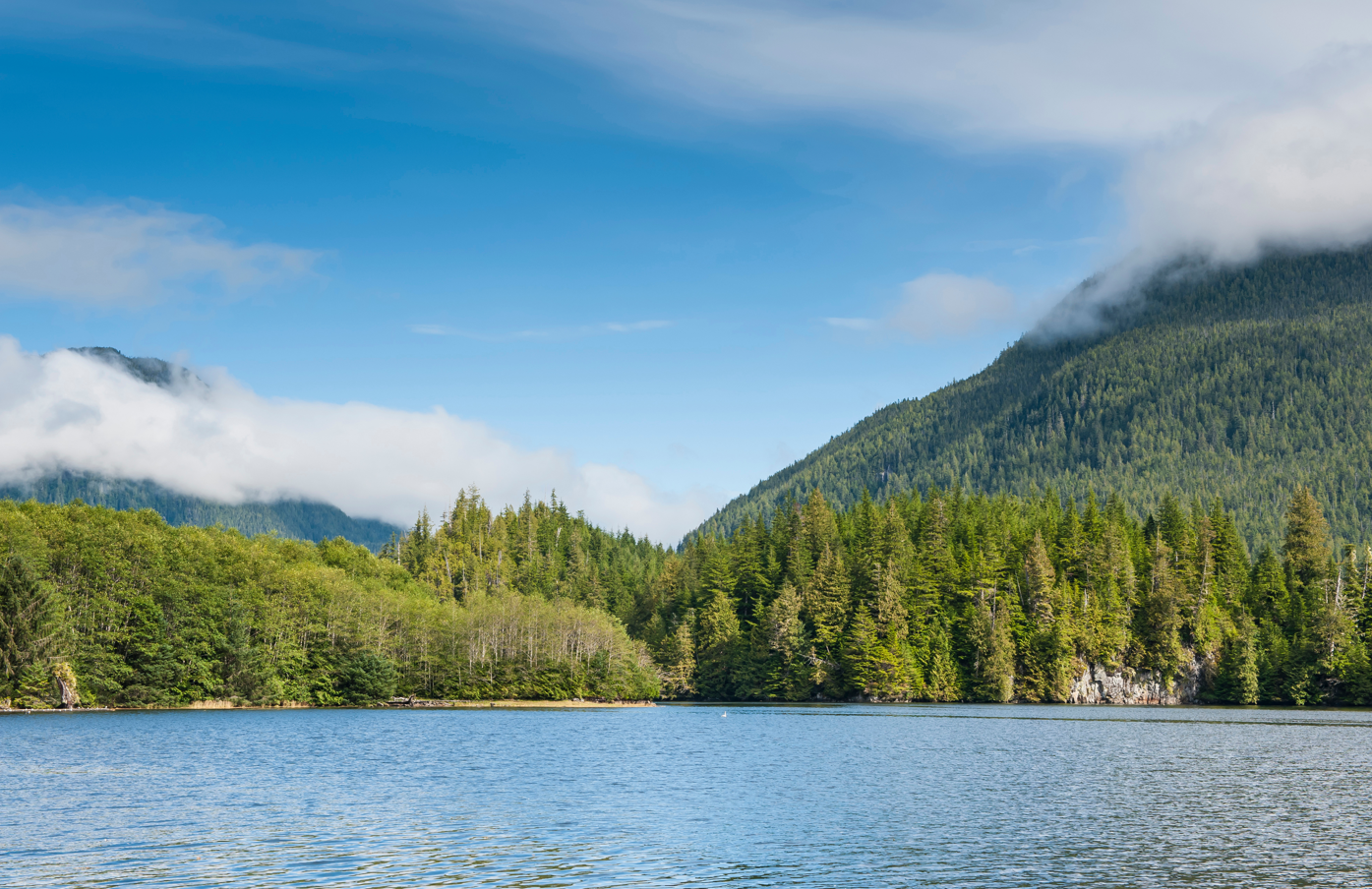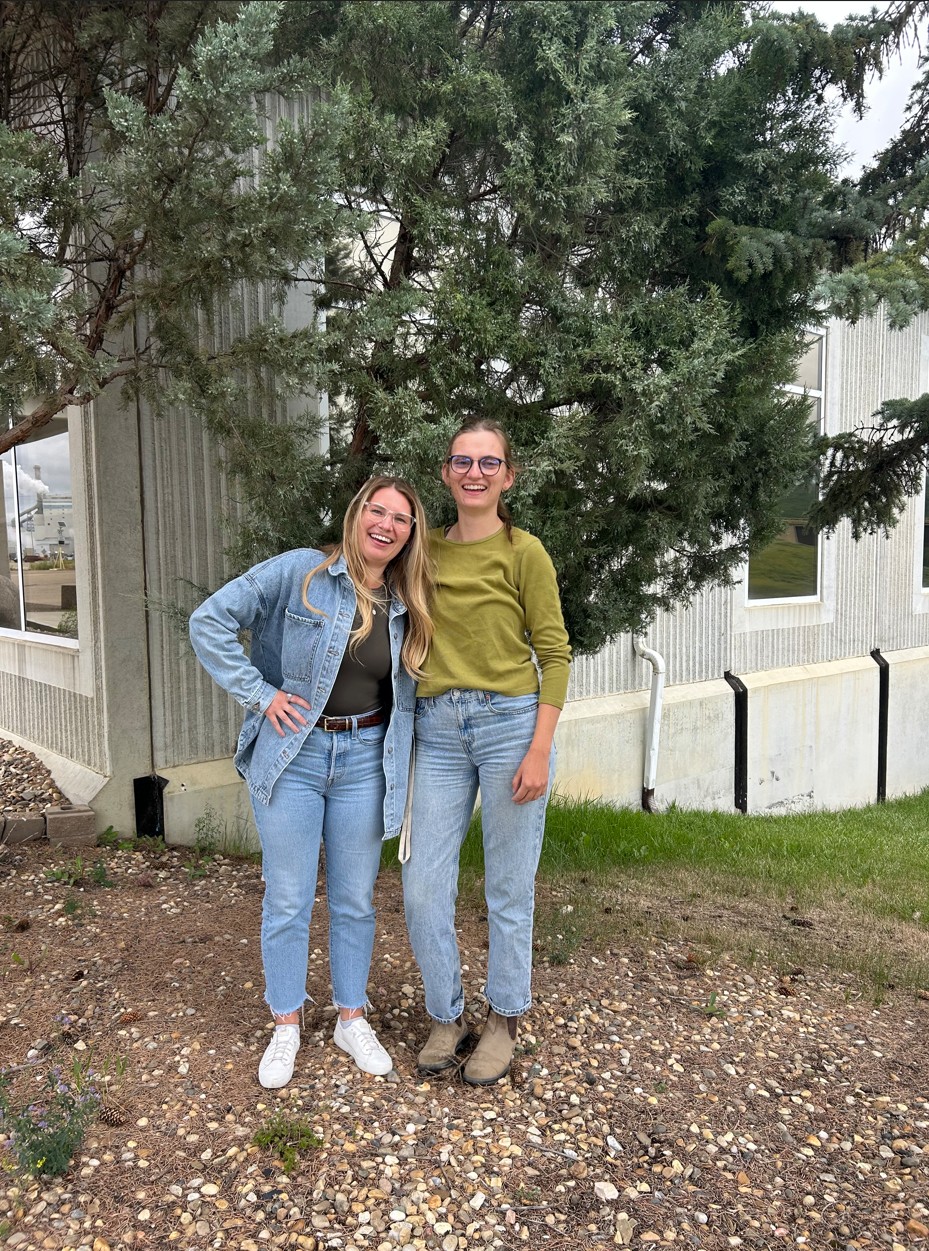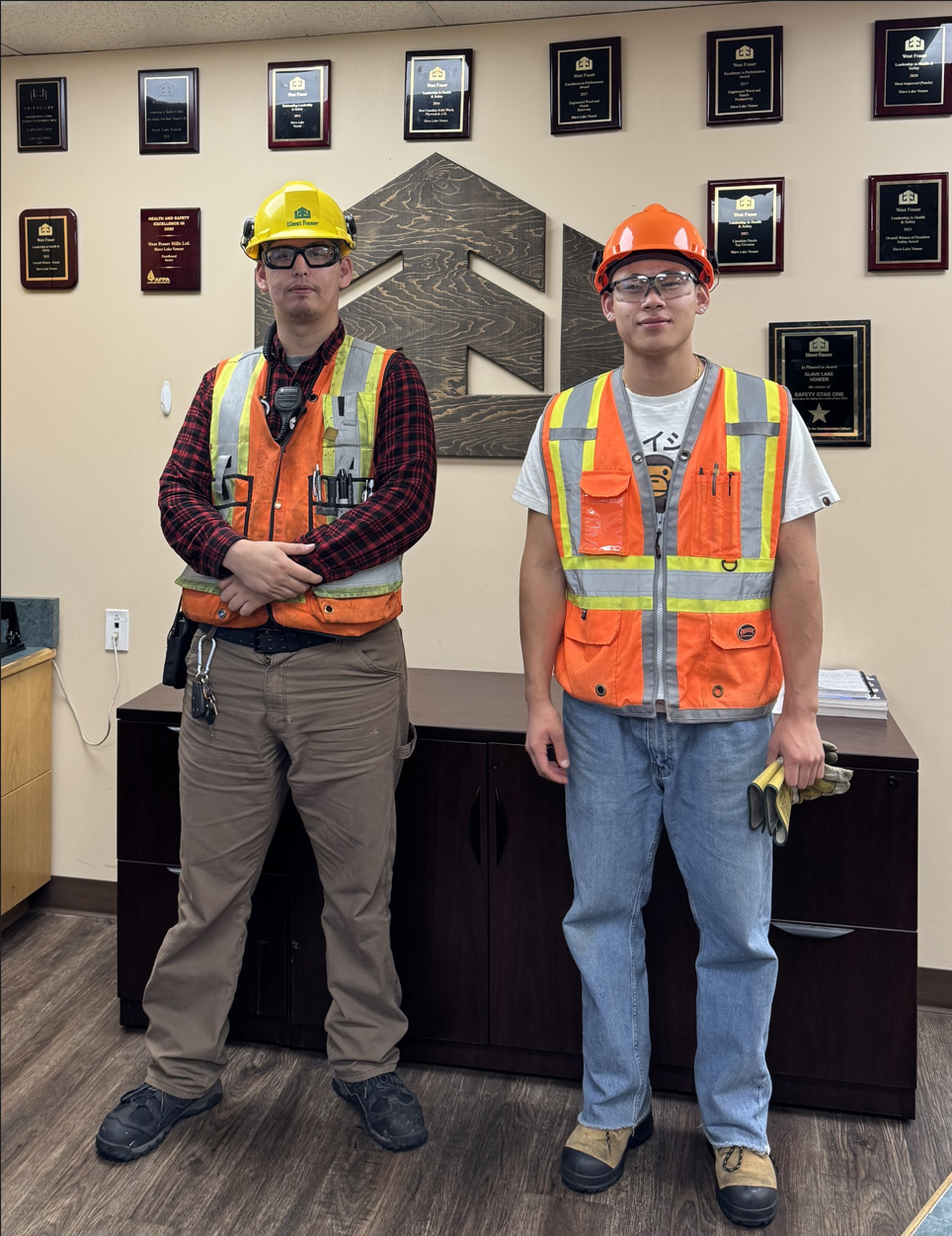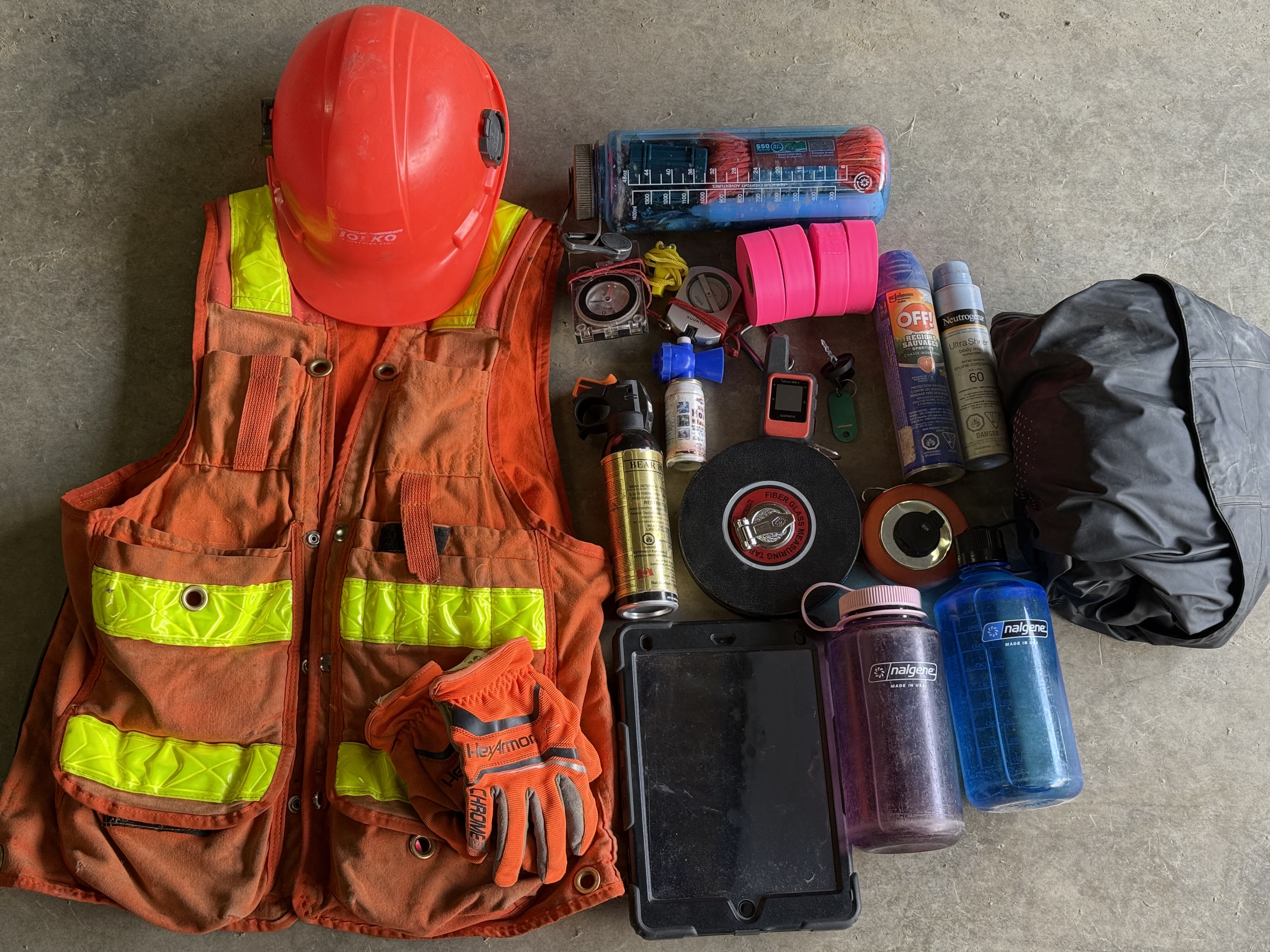My first month of the Green Dream Internship was with the roads division as I began to learn the ins and outs of how our bush roads are maintained and the efforts it takes to keep them in tip top shape. My supervisor, Robert Adams, was patient with me as I learned how to use some heavy equipment that I have never seen in my life before, such as a ground pounder, which I may have lost control of a few times. We work well together, having a sort of efficiency one hopes to have with a co-worker.
Most of our days were spent building French drains, which are meant to help alleviate water buildup underneath roads, so they don’t punch out. We would meet up early in the mornings to pick up the excavator from Rentco, fuel up at the pumps, and then off to the bush. Robert would dig up the roads with the excavator and I would ensure he stayed within the proper slope for drainage. Once the road was dug up, I would measure the length of the dig and cut weeping tile and the Geo-Grid that would hold the ice rock in place. The Geo-Grid was laid down first, and then the weeping tile. I’d jump down into the dug corridor and ensure that the weeping tile was laying the proper way (apart from one another and the ends would face downwards for ease of water flow) when the ice rock was poured in from the dump truck. Ice rock was used as a gradient for water to flow through and prevent it from freezing in the winter. I would rake out the ice rock so it would be level. Once the ice rock was poured, the grid wrapped around, and dirt poured back over it came my time to shine: the ground pounder. This thing weighs at least 100 pounds, vibrates excessively, and has a mind of its own. The first few times was chaos. It would constantly run away from me, flattening dirt wherever it so pleased. Eventually, I got the swing of it and began flattening dirt where I so pleased. French drains are effective at removing water from a spanned length rather than a concentrated area, ensuring that the roads would not buckle over time. Robert and I built over a dozen French drains throughout our Forest Management Area within the first few weeks of my internship.


I was given the opportunity to “learn” (more like have some fun) how to operate the excavator as Robert showed me the ropes. When I say I was grinning from ear to ear is an understatement. There’s something very fulfilling from playing with toy versions of heavy machinery as a child to operating them as an adult. I learned the basic mechanisms of how to move the excavator, operate the boom arm, and be able to scoop up and drop some dirt off. Don Petteplace (the Roads Coordinator at Weyerhaeuser) encouraged me to jump up and learn how to operate the excavator. He said, “I believe in developing people and helping them learn new things”. It’s a statement that resonated with me because it showed me that Weyerhaeuser cares about its summer interns, whether we’re here for one season or many. Don believes that summer students should be exposed to different aspects of forestry and really learn all the avenues within the industry to be prepared for our future careers within the forestry sector.

Besides from building French drains, I’ve also had the opportunity to fix bridges, fill in potholes with cold mix, observe the large-scale hot mix paving operations, and help manage traffic while the freshly gravelled road was sealed with SS1 oil (which is a rubber molecule that bonds to gravel and seals it from weather conditions). I feel as oftentimes many people underestimate the amount of work that gets put into road maintenance. Repaving the main haul roads is time consuming, weather-dependent, costly, and oftentimes underappreciated. Another supervisor, Brandon Sonnenberg, spent a few weeks of 12+ hour days organizing hot mix trucks to fill potholes over a span of 150 kilometers of main roads. Even after the roads are completed and the road bans are lifted, sometimes they are immediately ruined which is disappointing to see. It is an uphill battle to repair roads that are constantly under heavy use from logging trucks, oil workers, and recreational vehicles, but without our roads division, we wouldn’t have access to our forests, and with no access we wouldn’t have wood products. Always appreciate your roads division and the hard work they put in!











.jpeg)


